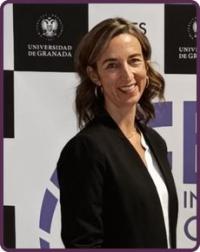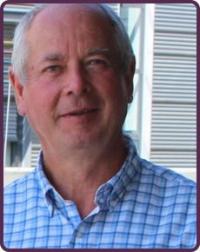Visiting Professors and Visiting Lecturers
The Doctoral School offers a unique opportunity to take part in classes led by academic experts – professors and lecturers from all over the world. As part of the “Visiting Professors” and “Visiting Lecturers” programs, PhD students, thanks to unique classes, have the opportunity to enrich their individual course of education and broaden their knowledge horizons. We encourage you to follow the news, because the offer of these classes is varied and updated on an ongoing basis. Details about the subjects, including topics, dates, etc., can be found below in the courses' cards or in the Doctoral School’s courses tab.
Rules of cooperation
The Visiting Lecturers and Visiting Professors programs are based on close cooperation between the Doctoral School, the Applicant and the Visitor. Applications are accepted and verified by the Chairwoman of the Education Committee, Prof. dr. hab. inż. Aneta Pobudkowska-Mirecka (ksztalcenie.sd@pw.edu.pl). After accepting the proposal for classes, the Doctoral School presents the details of the operation of the programs. First of all, they concern the following division of responsibilities:
- Doctoral School – is responsible for providing all necessary information and presenting organizational and administrative issues concerning the agreement with the Visitor, remuneration, reimbursement of travel and accommodation costs.
- The Applicant – is responsible for assisting the Visitor during the implementation of stationary or online classes and the organization of stay and travel. The most important aspect is the organization and promotion of classes: ensuring dates, place and participants.
- The Visitor – is responsible for conducting classes in accordance with the agreement. The Visitor must also pay and organize travel and accommodation on their own, the costs of which will be reimbursed by the Doctoral School after presenting the required documents (invoices/bills and payment confirmations).
The person responsible for administrative support at the Doctoral School is Piotr Salamon (piotr.salamon@pw.edu.pl).
Our guests ,,Visiting Professors"
ㅤ
|
|
ㅤ Course offered: Reliability of Structures Semester: 2024Z Dates: 16.10.2024 – 20.12.2024 Course card: Reliability of Structures (4606-VP-ES-00005) |
| Prof. Andrzej S. Nowak works at Auburn University in the USA at the Department of Civil and Environmental Engineering, after 25 years at the University of Michigan and 8 years at the University of Nebraska. He received his MS and Ph.D. from the Warsaw University of Technology in Poland.His area of expertise is structural reliability and bridge engineering, and major research accomplishments include the development of a reliability-based calibration procedure for calculation of load and resistance factors. The procedure was successfully applied on calibration of AASHTO LRFD design code for bridges, ACI 318 Code for Concrete Buildings, Canadian Highway Bridge Design Code, and British Standard BS-5400. He made important contributions in the area of bridge diagnostics and evaluation, including analytical load models used for prediction of extreme load events for bridges and buildings and the development of efficient experimental procedures for weigh-in-motion measurement of truck loads, dynamic loads on bridges and fatigue load spectra. In the area of materials, Prof. Nowak has developed a design guide for self-consolidating concrete (SCC), including field applications. Prof. Nowak has authored over 450 technical publications, and chaired a number of committees associated with professional organizations. | |
| ㅤ |
ㅤ ㅤ 1st Course offered: Entrepreneurship Studies 2nd Course offered: Marketing Management Semester: 2024Z Dates: 10.2024 – 12.2024 Course card: Entrepreneurship Studies (4606-VP-ES-00004) Course card: Marketing Management (4606-VP-ES-00003) |
| Professor Akanni, Kassim Adekunle is a research fellow at Olabisi Onabanjo University, Nigeria. His research and teaching activities include agricultural economics, marketing, consumer research, development economics and international trade. Author of over 80 articles in reputable academic journals and several monographs. Public commentator on contemporary economic and social issues in Nigeria. Winner of many international grants and research awards. Member of many professional organizations such as the Nigerian Association of Agricultural Economists (NAAE), Business and Economics Society International (B& ESI) in the USA, International Association for the Study of Forced Migration in Canada. Consultant to national and international organizations such as the Ministry of Agriculture and Natural Resources of the Lagos State Government in Nigeria, Department for International Development (DFID) in the UK, Alliance for Global Integration in Malaysia. | |
ㅤ
Our guests ,,Visiting Lecturers"
ㅤ
|
|
ㅤ
Course offered: Key issues in Hydrogen & CO2 valorisation: Semester: 2024Z Dates: 21.10.2024 – 25.10.2024
Course card: Key issues in Hydrogen & CO2 valorisation: |
| Michel Cassir is Emeritus Professor at Chimie ParisTech, PSL-University. Former leader of the research team “Interfaces, Electrochemistry, Energy” (I2E). He obtained his Ph.D. and habilitation at the University of Paris VI, France. He was a Professor 9 years at the National University of Mexico (UNAM). He was Director of the Laboratory “Electrochemistry, Chemistry of Interfaces & Modeling for Energy”. His expertise covers electrochemistry, molten salts, solid oxides, separation techniques, thin layers and nanotechnology. His main activities are dedicated to high temperature fuel cells & electrolysers (MCFC, SOFC, PCFC, hybrid cells), batteries, CO2 capture, thin layers, catalysis and sensors. He gave more than 300 conferences in scientific events (>100 invited conferences) and authored 295 scientific peer-reviewed publications, proceedings & book chapters. Director of 30 Ph.D. thesis and of an important number of academic & industrial collaborations.Professor Michel Cassir will share his scientific and professional experience, through a serial of courses/conferences, as Invited Professor at the Warsaw University of Technology, Faculty of Power and Aeronautical Engineering. He will address a large panel of topics, from the understanding of electrochemistry and electrochemical devices to the insight into hydrogen economy and renewable energy sources and, finally, a view on new CO2 capture technologies. He will also give a critical approach on sustainable development. | |
| ㅤ
|
ㅤ ㅤ Course offered: New-generation concretes Semester: 2024Z Dates: 10.2024 - 11.2024 Course card: New-generation concretes (4606-VL-ES-00012) |
| Professor at the University of Granada since 2008, in the Department of Civil Engineering Construction and Engineering Projects. I teach Civil Engineering Construction and Material Science in Civil Engineering Degree as well as Material Science and Concrete in Science and Technology Architectural Heritage Master and Advanced Concretes in Civil Engineering Master at the same University. Civil Engineering, PhD since 2012. My research is focused on construction materials and the main research lines among others are: Reuse of waste in concrete; New technologies in self-compacting concrete; Study of corrosion of reinforcements in concrete; Revaluation of technological nutrients as building materials; Sustainable pavements and recycled asphalt mixes. I accumulate a series of university management activities such as the direction of the Departmental Section of Construction Engineering, the Coordination of External Practices of the School, the participation as a member of the Master Academic Committee and the Internal Guarantee of the Quality and since 2021 I am deputy director of the Civil Engineering School at the University of Granada. | |
| ㅤ
|
ㅤ Course offered: Drops and Bubbles – an introduction to colloids and interface science Semester: 2024Z Dates: 11.2024 - 12.2024 Course card: Drops and Bubbles – an introduction to colloids and interface scienceurers (4606-VL-ES-00006) |
| Reinhard Miller studied Mathematics at University of Rostock (1969-1973) and Colloid Chemistry at the Technical University Dresden (1977-1978), Germany. He got his PhD in 1978 and Habilitation in 1988, both at the Academy of Sciences in Berlin, Germany, on problems of adsorption kinetics and dilational visco-elasticity of surfactant adsorption layers. From 1992 until 2015 he worked as Group-Leader at the Max Planck Institute for Colloids and Interfaces in Potsdam/Golm in the field of thermodynamics, kinetics and mechanics of surfactant and protein adsorption layers at liquid-fluid interfaces. 2015-2019 he was Senior Scientist at the same Max Planck Institute for Colloids and Interface, and since 2020 Dr. Miller is Associate Senior Scientist in the Institute for Soft Matter Physics at the Technical University Darmstadt. His scientific interests are dynamics and mechanics of liquid interfaces, thermodynamics of adsorption of surfactants, proteins, polymers, particles and their mixtures, interfacial interactions and 2D shear and dilational rheology, formation and stability of foams and emulsions. He published about 700 papers in referenced journals (Web of Science), about 50 chapters in books, and about 50 contributions to printed conference proceedings. | |




